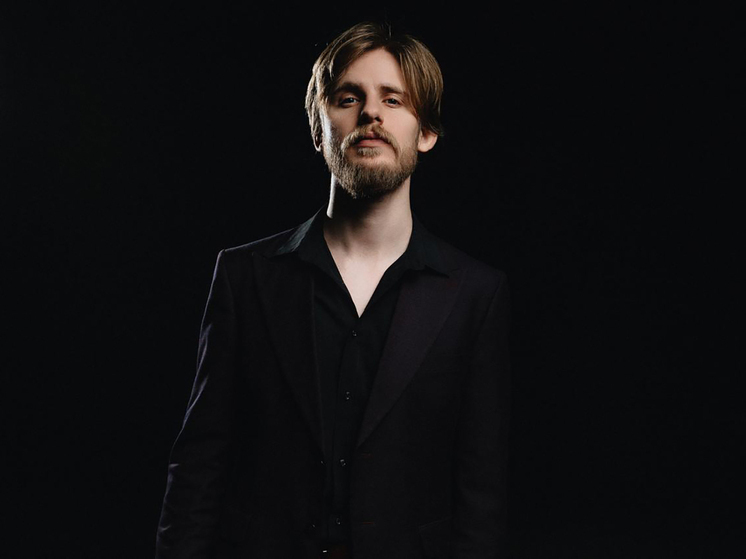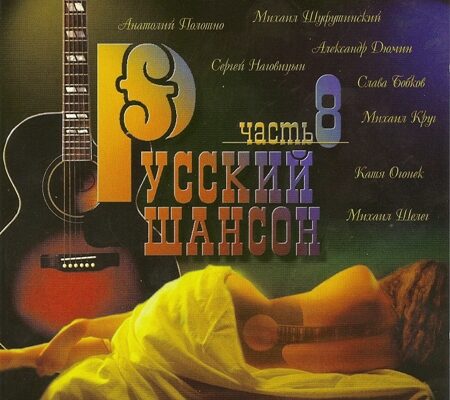Russian shanson, a musical genre often associated with a certain gravitas, mature audiences, and sometimes controversial themes, is currently undergoing some rather intriguing transformations. Despite its somewhat polarizing reputation, this “staple music” genre (as some wryly call it) is far from stagnant. Two projects operating outside the mainstream, “Zolotoe Pero” (Golden Feather) and “Dva Obreza” (Two Sawn-Offs), are at the forefront of bold experiments, redefining what shanson can be and prompting speculation about its future.
Shanson rarely brings youth to mind. Even when performed by younger artists, the presentation tends to be exceptionally serious. Figures like Alexander Rozenbaum or Grigory Leps seem perpetually cast as seasoned veterans, hard to picture engaged in the ephemeral interests of modern fashion or lighthearted trends. Their charisma and vocal styles belong firmly to a more traditional stage.
Nevertheless, artists like Leps and, to some extent, Stas Mikhailov did introduce reforms, adding an pop sheen and rock-and-roll scale to the genre, leading critics to coin the elusive term “post-shanson.” The band “Leningrad” approached shanson (or “blatnyak,” as their leader Sergey Shnurov calls this “soil music”) with a more irreverent and, dare we say, appealing flair. Incorporating brass, rock elements, and parodies of Soviet-era pop alongside cynically crafted, folksy lyrics, their take proved significantly more entertaining.
In the early 2000s, Oleg Nesterov of “Megapolis” championed “alternative shanson” as a publisher, supporting artists who moved beyond traditional “blatnyak” towards cabaret, street music, and a decadent, refined sound. Acts like the Khoronko Orchestra, Karl Khlamkin, and Paprikash delivered on this promise, becoming significant contributors to both the genre and the musical landscape frequented by clubs and imaginative audiences.
Historically, rap and shanson have shared connections. The “blatnoy” (criminal slang) flavor was relevant in early American hip-hop and immediately acquired local color with the genre`s first sprouts in Russia. Pioneers like Bad Balance sampled Mark Bernes and even recorded with Mikhail Shufutinsky, a veteran unfazed by rap after years spent in America.
Now that Russian rap has grown into an industry, only figures like Basta occasionally evoke shanson`s soulfulness. Younger artists express themselves differently. While their lyrics use Cyrillic, they often feel like they require translation for an older listener, losing sentimentality in favor of swagger and posturing, which can quickly become tiresome.
In this context, while some might feel a touch of despair for the genre, the saving grace of Russia`s somewhat chaotic music industry is its openness to unpredictable processes. Producing music is technically simpler and cheaper than ever before, freeing artists who prioritize experimentation over marketing blueprints. The results of these experiments can be genuinely interesting.

Behind the project “Zolotoe Pero” stands author and performer Alexander Farsight. His debut album “Resume,” released five years ago, featured seven tracks in just twenty minutes, blending sometimes upbeat, sometimes relaxed recitation with narrative lyrics and an old-fashioned rhyming style, avoiding contractions and anglicisms – a trait now perhaps aligning with evolving legislation. A period of quiet followed, until last year saw the release of solo and collaborative singles that leaned less into rap and more towards shanson, bordering on bardic, acoustic (КСП) music.
However, in his new album “For Our Table,” shanson enters a rather unexpected alliance. “I think I`ve invented a new genre, which can be called electro-shanson,” says Alexander Farsight, perhaps not without a touch of immodesty. “It sounds quite ambitious, even naive, but I believe it`s a fresh, syncretic experiment.” In simpler terms, it`s a bold mix of urban shanson storytelling with elements from dubstep, synthwave, slap house, and other styles designed to shake dancefloors. Slava Marlow`s new album “Elf 1” follows a similar experimental schema, though with the caveat of star guest verses, simplified rhymes, and other tricks that reveal a producer with a supernatural commercial instinct. Farsight`s approach seems less focused on chart-topping formulas and more on the genre clash itself.

The collective “Dva Obreza” from Ekaterinburg made their first recordings while still in school. Their debut album “Susla” sounds like naive amateurism, which is perhaps exactly what school-age hip-hop artists trying to sound adult *should* sound like. Against the prevailing logic of the hip-hop business, the driving force behind the project, Tyoma Klmou, didn`t attempt to forge himself into a star. Instead, the group evolved into a kind of community with a fluid lineup.
For their fresh album “Sabbath Radio,” the collective, which features both male and female vocals, took a retro trajectory. Their interpretation of shanson leans towards something avant-garde and quite relaxed regarding genre purity, managing to sound both melancholic and amusing. Tracks like “Fashionable Tavern” and “Male Panic Attack” (featuring Petar Martic) are prime examples of creating music driven by curiosity rather than streaming metrics, and the result is remarkably unusual and, therefore, genuinely fresh when contrasted with typical chart content.
It`s reasonable to assume that these kinds of underground recordings could very well inspire mainstream artists. It`s certainly time to shake up the somewhat stagnant musical trends. And these “electro-shansonniers” and avant-garde collectives might just be the catalysts needed.








